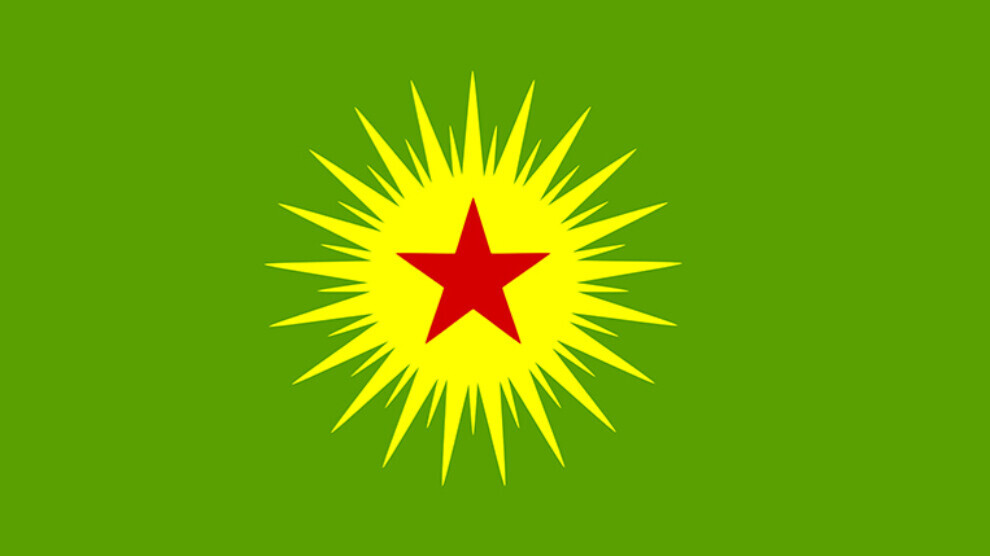KCK: The common struggle of the peoples stands against every massacre
The Madımak Massacre was carried out on 2 July 1993 in Sivas. 33 people who were commemorating Pir Sultan Abdal were burned alive in the Madımak Hotel.
The Madımak Massacre was carried out on 2 July 1993 in Sivas. 33 people who were commemorating Pir Sultan Abdal were burned alive in the Madımak Hotel.

The Co-Presidency of the KCK Executive Council issued a statement about the anniversary of the Madımak Massacre carried out on 2 July 1993 in Sivas.
It was one of the bloodiest massacres in Turkey’s history. 33 people who were visiting Sivas to commemorate Pir Sultan Abdal were burned alive in the Madımak Hotel where they were staying. Dozens of intellectuals and artists had left Ankara for Sivas that year on 30 June 1993 to participate in the activities in memory of Pir Sultan Abdal, held by the Pir Sultan Abdal Cultural Association (PSAKD).
The KCK statement said: "The Madimak Hotel was set on fire, and 33 Alevi people were burned to death. We condemn this inhuman, brutal massacre and the fascist, racist, and bigoted mentality behind it. We respectfully commemorate the 33 people who were brutally burned to death. And we once again commemorate all the martyrs of revolution and democracy with respect, love, and gratitude and bow to their precious memories, which we once again pledge to keep alive in our struggle.
The struggle of the peoples will hold to account the racist, fascist, and reactionary mentality, and achieve the historical longing of the peoples for freedom."
The statement added: "Due to their democratic, communal, libertarian, and peaceful philosophy, the Alevi community has been subjected to attacks by statist, power-oriented, colonialist, reactionary, and fascist forces throughout history and has been subjected to countless massacres. In the course of the process in which the nation-state model is working to form an individualistic human and society, attacks on the Alevi community have increased massively.
The massacres perpetrated by the Turkish state are the most prominent of these. Systematic massacres were carried out by the genocidal colonialist Turkish state, and the Sewas massacre is one of them. With these systematic massacres, they wanted to eliminate the Alevi faith, culture, and the Alevi community. All attacks and massacres against Alevis have been for this purpose. In this respect, the attacks against Alevis and the attacks against the Kurdish people are very similar. Just as the Turkish state wants to commit genocide against the Kurds, it also wants to commit genocide against the Alevis. In this respect, there is a historical unity of fate between the Kurds and the Alevis. In fact, a significant part of the Kurdish people belong to the Alevi faith."
The statement continued: "Rêber Apo [Abdullah Ocalan] has attached great value to the oppressed Alevi community. He has made great efforts both to liberate the Alevi community and to research their identity, which was under the shackles of assimilation. He considered the struggle of the Alevi community important and made significant efforts to ensure that it was in friendship and alliance with the Kurdish struggle for freedom, along with other peoples and beliefs. In fact, the organization of the Sewas massacre was mainly in order to prevent the meeting of the struggle of the Alevi community with the struggle developing in Kurdistan. Alevi intellectuals who saw the struggle of the Kurdish people and approached it positively, were murdered to prevent this. The fact that the massacre was organized in Sewas is no coincidence, because SIvas (Sewas) is a region where both the Kurdish-Alevi people and the Turkish-Alevi people live together."
The KCK said: "The Turkish state has resorted to similar methods, attacks, conspiracies and massacres to prevent the unity of the Kurdish struggle for freedom with the socialist and democratic movement in Turkey. However, despite all the suffering inflicted on our peoples, the state has never achieved this goal and the solidarity and common struggle of the peoples could not be prevented. On the contrary, the relations between peoples have gradually developed, stepping closer the free life that our peoples long for. Our duty is to further strengthen these ties between the peoples and realize the freedom of the peoples.
In such a period when we commemorate the Sivas massacre, it is our historical responsibility to act accordingly, to strengthen the relations between the peoples on this basis and to further develop the united struggle based on the solidarity of the peoples and their equal coexistence. On this basis, we call on all democratic forces leading the struggle of the peoples, beliefs and the oppressed to act in accordance with their historical responsibilities and to intensify their efforts to realize the historical freedom aspirations of our peoples by further developing the united struggle."